Buying a PC would be very simple if you are ready to spend a fortune on that, this means you can buy the latest and high-end components without thinking twice. But most of the time for buyers that is not the case, as money is a big factor.
When you are out in the market to buy a PC component you have to keep in mind your need, your budget, and also the longevity of your newly build PC. Also, there is a factor of compatibility; if you end up buying 10 years old PC components at a very cheap price at the present time, your need for the PC may not suffice due to lack of compatibility, between the latest software apps and the CPU, GPU of your system. So, buying the cheapest parts and components is not a solution at all.
On other hand, we know desktop PC are quite expensive, and if you opt for the best components available in the market i.e. best & costliest CPU, GPU, and Motherboard, then the cost-effectiveness of your business or personal use are going to be slain.
Various kinds of PC build can be done depending upon the user’s need i.e. Gaming PC, Graphics Designing & Rendering PC, Video-Audio-Photo Editing PC, Office PC, etc. Now depending upon those needs one must keep in mind the budget factor, compatibility factor, and the longevity factor before end up buying the components.
About this Discussion
In this article, I am going to discuss the PC building tips along with my opinion on it. So that any layman reader can understand what kind of PC hardware he/she should buy. I am not going to promote any hardware from any company in this article. If I use any name of any specific product that is just for explanation purposes.
Read this article thoroughly to understand the complete concept of PC building, and how you can save some money by not wasting it on some unnecessary parts and components. Even if you are experienced in PC building then also you can go through this article to realize some of the mistakes which may have committed. If you have any cross points or suggestions put your ideas in the comment section below.
What Specifications are Actually Needed for your PC
As the need for a PC varies from user to user, so the specification should also vary as per the job deemed from that PC. Here is a basic concept upon the fact:
CPU (Processor)
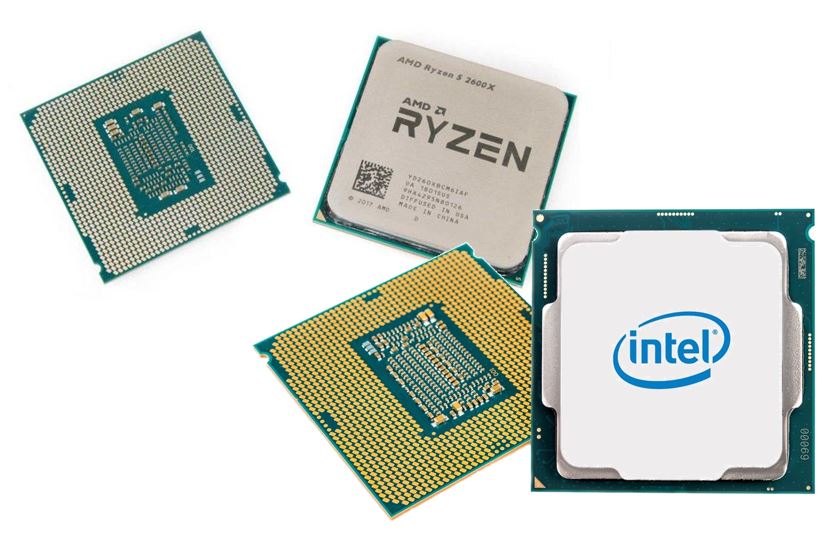
CPU is the most important part of any computer. It process all the data and logic, hence the speed of CPU itself is the actual speed of the processing capability of any PC. Now CPU can be very costly, in some cases, there are also insanely cheap CPU are available as well.
The costliest CPU can cost you around $3499 like the AMD Ryzen Threadripper 3990X, and the Intel i9 10th gen in a top edition can cost you around $1200 or more in 2020.
But, do you really need to spend that insane amount on CPU only. The and is NO; no matter what kind of a gamer are you or how big of a Content Creator or Live Streamer you are, you do not need to have such costly CPU.
So, spending on such CPU should not be a choice at all. For best performance and cost ratio go with mid-ranged CPU such as Mainstream or Performance cadre CPU like Ryzen 5 3600X ($250), Ryzen 7 3700X ($330), 3800X ($400). On Intel’s side, you can go for the Core i7 9700K, 10700K ($400), i5 9600K, 10600K ($270), etc.
But going for the CPU like Ryzen 9 3900X ($550) or 3950X ($750) or Threadripper 3970X ($2000) etc. is not advised at all.
Even CPU like Intel Core i9 10980HK ($600) or i9 10900 ($500) is not needed at all even for an enthusiast-level gaming PC, as there is going to be a powerful GPU in your PC build which would be helping your PC to run the games. Even if you are making a PC for graphics rendering or graphics designing job, or for the job of a content creator, audio-video editor the above-discussed CPUs are good enough.
Now if you are looking for an office PC setup, you do not need the above-discussed CPU at all, as the Office PC setup is the most basic PC setup of all.
For such PC always go for the lowest end but latest gen CPU from Intel or AMD, like Intel Core Pentium Gold G6600 or i3 10th gen, etc, but do not go for the decade-old Intel Core Dual Core or i3, i5 1st gen CPU, as that CPU will lead to compatibility issues; for example, you won’t be able to run OS beyond Windows 7 smoothly and many other app oriented compatibility errors. On AMD’s side you can go for the Ryzen 3 3100 ($100) or 3300X ($120), Ryzen 3 1200 ($60) or Ryzen 5 1600 ($90) etc.
In the case of Office PC, APU is a great option actually, so you can consider getting AMD APU like Ryzen 3200G ($100), Ryzen 3400G ($150), etc.
If you choose to use APU, then you do not need to have a GPU in your PC necessarily, it is a very good idea for Office PC or Basic Media PC build, as it will cut down the budget decently and also provide the same performance as an entry-level GPU.
See: Top 10 CPU Coolers in the market for Gaming PCs in 2019-2020
Verdict
- Go for the latest generation CPU only, whether it is AMD or Intel no matter it is a gaming PC or editing PC or an office PC.
- Never go for the highest-end or enthusiast cadre CPU from any brand, instead, go for the performance cadre CPU only. Get the best model in the performance cadre, in the latest gen.
- At 2020 the price of your CPU should be under $400, for the Gaming PCs.
Also in case of office PC try to keep the price of CPU around $100-$120 only.
Graphics Card
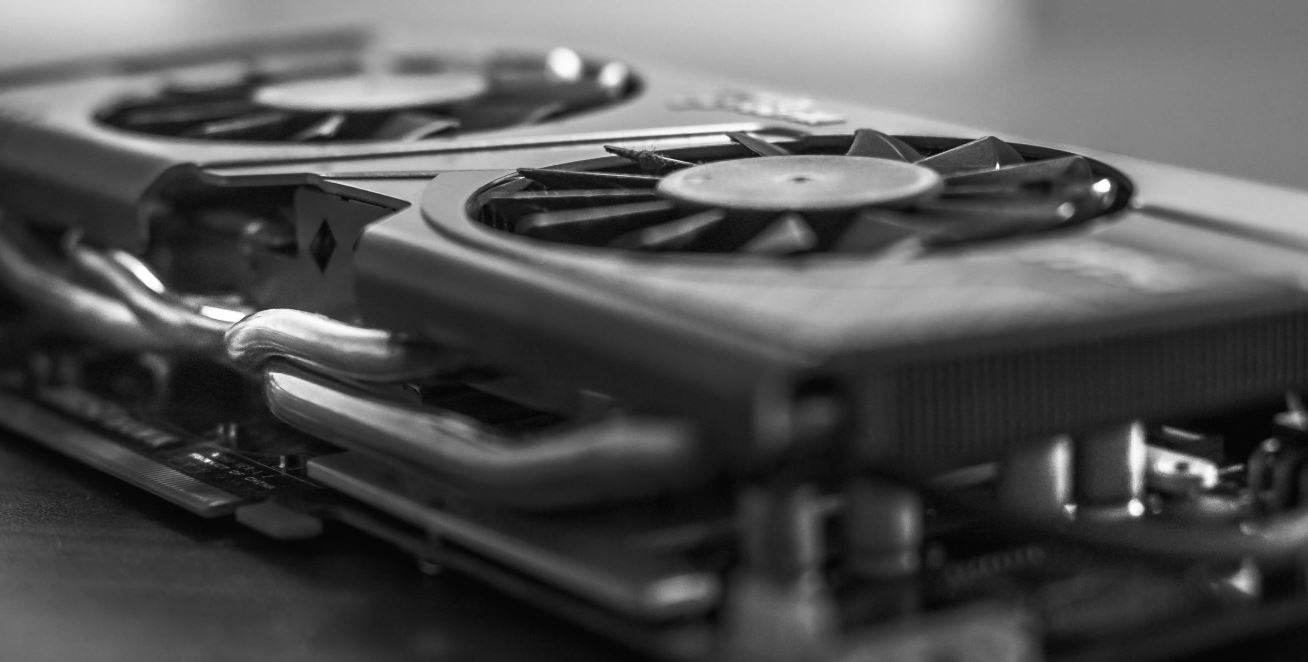
Graphics is the second most important component for your PC to ensure the best quality visual and performance. Many people do think of Graphics Card as an unnecessary component or a luxurious one, which is not true. Graphics Card is needed even at the lowest end PCs to ensure stable visual performance, and to enhance the CPU longevity. In visual graphics rendering the Graphics Card does take the charge over from the CPU in order to reduce the CPU load. So, yes Graphics Card is needed even at the lowest end PCs.
Now the question is what kind of Graphics card is needed and how much you should spend upon it?
If you are building a gaming PC then you are going to need a pretty serious amount of power from your Graphics Card, but that does not mean you have to go for the costliest graphics card in the market.
Even though graphics card is the most important component for visual graphics & performance but you have to keep in mind that no matter how costly & how much high-end graphics card you get, the longevity and the compatibility for the graphics card is going to last for 4-5 years at maximum.
Now you think yourself, that for 4-5 years of usage should you buy a graphics card worth of $1000-$1500. The answer is NO.
Again I would say not to go for the high-end components and advise to stick with the mid-range components. The entry-level graphics cards are not suitable for Gaming PCs at all. But, you can go for the mid-ranged Graphics Cards, which will provide you the almost the same experience and performance (can vary around 10-15%) as the top-end GPUs and will complement the price-performance-longevity ratio.
Hence, opting for graphics cards like Nvidia GTX 1660 or RTX 2060 is advised. Going for the Nvidia RTX 2070 or 2080 is not utterly necessary unless you want to show off. There is not much noticeable difference between the performance of RTX 2060 and RTX 2080 in most of the games as well as in the case of Video editing and Graphics Rendering, but the price difference is quite high.
Also, according to my experience if you are going for AMD Radeon Graphics Card you should go for the high-end segment as their high-end GPUs are comparable with Nvidia’s Mid ranged segment’s performance.
Therefore, going for Radeon RX 5600XT or Radeon RX 5700 XT is advised for gaming PC or Editing PC build. These graphics cards are a very good choice for Graphics designing and Video editing jobs also. But in order to fit it in budget ending up buying Radeon RX 580 or 570 would be a bad choice in 2020, as those are past gen graphics cards.
However, those are building an office PC or a very casual gaming PC, where the budget is very small, and high-end visual performance is not needed, there you can go for an entry-level graphics card. Graphics card like Nvidia GT 1030 or Radeon RX 5500 etc.
If you are building a rendering PC where you want to design games or be developing indie-games, there you may need a different breed of Graphics Cards. The normal commercial graphics cards about which we discussed above, will not be perfect for this kind of job. Here you can go with the Nvidia Quadro GPU, these are very costly, but this is made for unoptimized pixel rendering, pixel manipulation, and raw graphics designing jobs.
Verdict
- Go for latest-gen Graphics Cards only, if budget becomes a problem consider getting AMD graphics cards instead of Nvidia, at those are tend to be cheaper.
- Never go for the top-end segment of Nvidia graphics cards, as those will not suffice the cost-longevity-performance boost ratio.
- Keep in mind that any graphics card would need to be replaced after 4-5 years.
Never buy old, used, or second-hand graphics cards.
RAM (Memory)
While buying RAM, there is no choice like entry-level or top-level segments. But you can choose whether to go with a Heat sink mounted RAM or a normal RAM. In this case, I would personally recommend going with the Heat sink mounted RAM always. Never go with normal cheap RAM. As per the generation, the choice would depend upon the CPU, which has to be the latest, hence the RAM also. In 2020 DD4 would be the only choice, buying DD3 RAM with an OLD DDR 3 supported CPU and Motherboard would be a waste of money, and the user may end up with compatibility issues.
While getting RAM, keep in mind the specification of your CPU and the highest compatibility of RAM speed (in MHz) of that processor. Try to get the highest speed RAM supported with your CPU always, no matter it is a Gaming PC, Editing PC, or an Office PC.
On the other hand, getting RGB lighting enabled RAM is a waste of money according to me, especially in office PC. We will talk about the RGB lighting phenomenon going among all PC builders later in this article. But, RGB RAM is a big NO from my side. The RGB will make the RAM stick warmer than it should be and also would consume extra electricity, but not going to provide any sort of boost in performance.
On a different note-getting, two sticks of RAM are better in terms of security. If you have two sticks of RAM, and accidentally one of them got malfunctioned then the other stick will keep performing, so your PC will stay at operational condition, which is not the case with a single channel RAM stick.
Verdict
- Always get the heat sink mounted RAM for better performance in hot weather and for better longevity.
- Always go for the highest speed of RAM which is supported by your CPU.
- Buying RGB RAM is not advised.
- Getting two RAM sticks is advised for PC safety.
- For Gaming PC at least 16GB (8GB x 2) RAM is advised, while for Office PC 8GB RAM would be enough.
- If you are a Graphics designer or an indie game developer and you use Nvidia Quadro GPU in your PC, then getting 32GB or even more RAM is advised.
Storage (HDD / SSD)
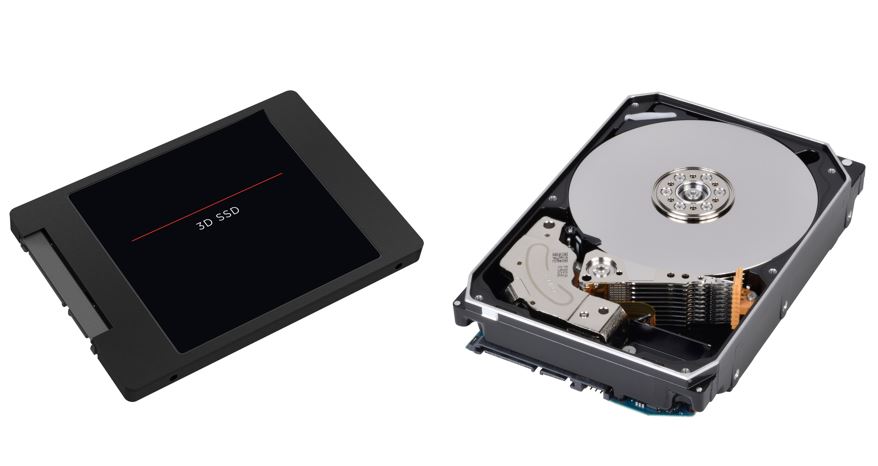
In case of storage, simply the bigger the better. Go for as much space as you can. The gamers would need a lot of space to store their big and huge games, while normal PC users can store thousands of Movies or Videos in his/her PC, so big storage is needed. In the case of Office PC, there are many backup copies are made due to safekeeping of files, so big storage is helpful there too. But there is another fight is going out there about HDD vs SSD, which one is better and which one to be used.
As we know that SSD is almost 50-60 times faster than HDD, but very much costlier than HDD too. While in the price of a single 580GB SSD, one can buy two 2 TB HDD, so the question is which one to use.
Now let me clarify that SSD is faster but it does not put any effect and let me quote “any effect” on gaming performance.
As the speed of the storage device does not affect gaming, so for a gaming PC SSD is not a necessary part at all. But SSD would speed up the booting time, loading time of games, and even update initialization time on games. So, it is not a necessity till date, but more of a luxury.
While on the other hand, SSD can be a crucial part of those people who do work in the field of Content creation, Video editing, audio editing, etc. As in such jobs, you need to handle many huge files, and the copy-paste speed with SSD is very fast, it is almost 50 times faster than HDD. So, for such jobs, SSD can be a necessity in present-day computing. Also in Office PCs, SSD can provide the user with a speed boost which will increase productivity.
Verdict
- In gaming PC SSD is not a must, but you can keep a 120-240GB nominal SSD as the booting drive to speed up the booting process and game loading process.
- In Editing PC huge storage space is needed, so along with a 2TB or 4TB HDD, a 480 GB SSD would be a nice pair to increase the productivity.
- In-office PC with nominal entry level components, SSD can be a crucial component that will increase the speed of data handling, so the productivity will increase, which is the main goal of an office PC. So, yes for an Office PC I would recommend for going for SSD over HDD as the only storage device.
Motherboard
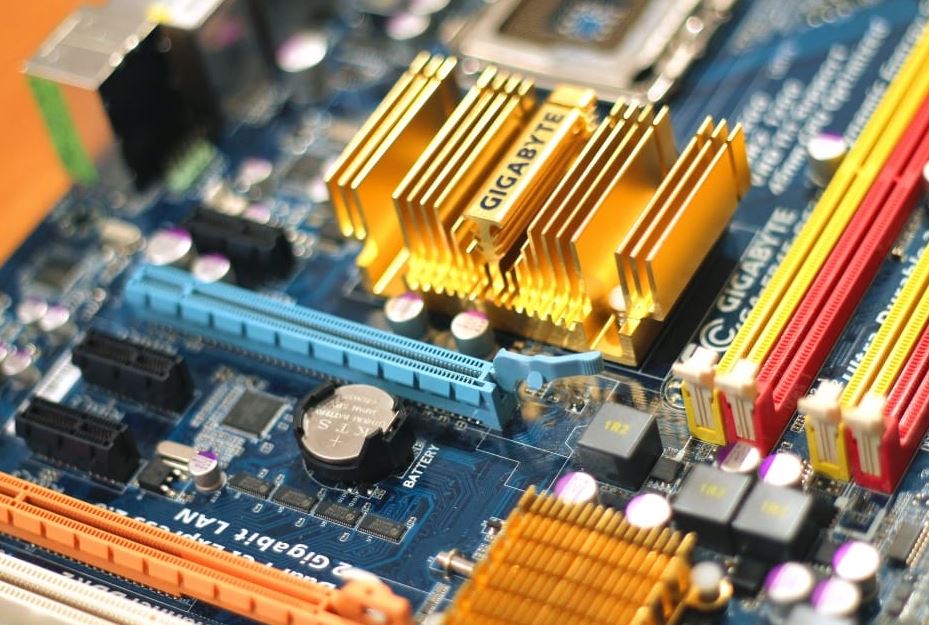
When you have selected all the components then you can come to the motherboard, as in the end, it will be easier to choose the ideal and compatible Motherboard for all of the above stuff which you have selected.
In Motherboard many people do spend a decent amount of money, but in most cases, that money doesn’t get you anything in terms of performance or longevity.
While choosing the motherboard, the only thing you should look for the compatibility. Ask yourself and the shopkeeper, if all the other components which you have selected works with the motherboard or not, if yes then other things do not matter.
The cool-looking LED lights or Cool looking Shield won’t be getting you anything extra. So, spending more than $100-$120 on a motherboard is just a waste of money.
Many people opt for Wi-Fi enabled desktop motherboard, while at the end most of the users around the world end up connecting their PC with the router using a broadband wire.
Some motherboards do contains a hard reset and an on-off switch within the board, even some of the motherboards have little display panels to display the temperature, voltage, wattage, etc, none of which is useful for almost any kind of users, unless you are making an open-air cabinet less desk rig. So, spending a lot of dimes on features like those is not advised.
Of course, a good brand is a thing to opt for while going to get a motherboard so that you can rely upon the longevity of your PC.
For that, you can go for MSI, Gigabyte or ASUS motherboards. ASUS EX-A320M, MSI A320M Pro, Gigabyte GA A320M, etc. Are good enough for AMD Ryzen AM4 Socket CPU, the prices are quite low as well.
For Intel CPU users the Motherboard is a little more expensive. But, ASUS B365M Plus, Gigabyte GA-B250M, ASRock B365 provides good value at a decent price with good longevity.
PSU or SMPS
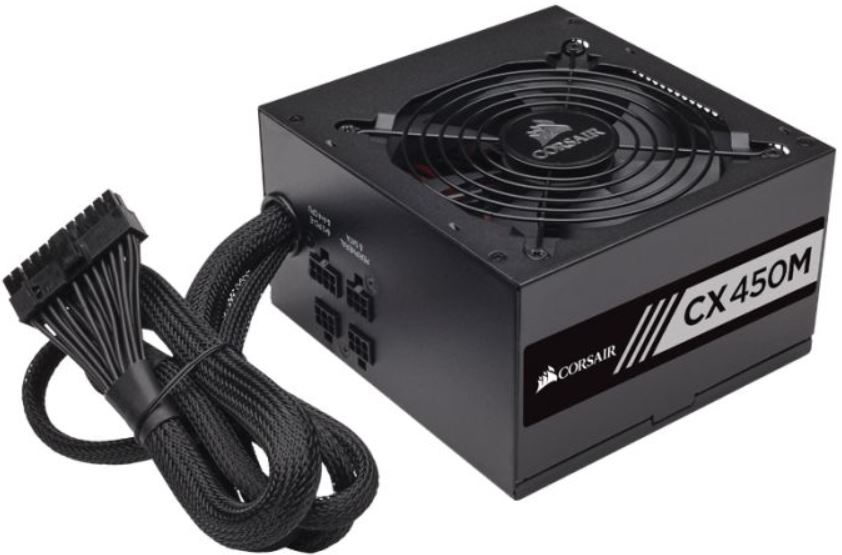
No matter what kind of a PC you are buying getting the best quality PSU is very-very important. PSU or formerly called SMPS is the main source of power for the PC. So, to maintain a stable voltage & wattage output, and to keep all the components out of the risk of a power surge, one must invest a little more in the PSU than the usual.
Buying a locally made, cheap PSU is always to be avoided. Go for brands like Corsair, Cooler Master, etc. Also, go a little over the need for your supply. If your PC is needing a 450W PSU, then make sure to go for the 550W, likewise for High-performance gaming PCs if your PC needs 550W or 650W PSU, then go for at least 750W, for better safety.
Verdict
- Go for best quality, high rated and costly PSU, no matter your PC is a Gaming PC or an office PC.
- Always go over the Power requirements of your PC, to ensure a stable voltage and a stable wattage output and to keep your components risk-free from the electrical surges.
Cabinet / PC Case
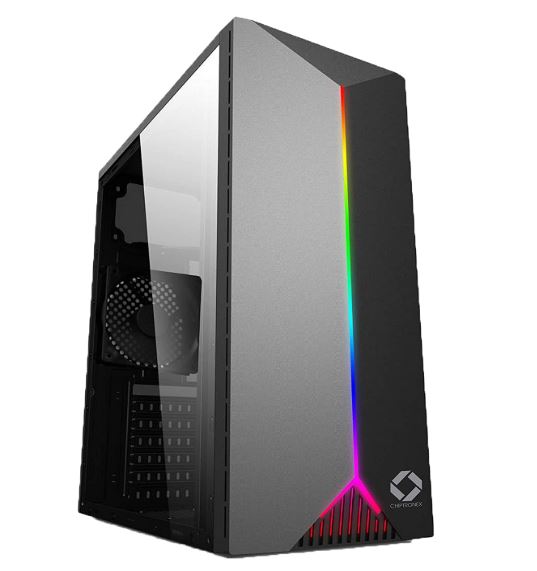
Many PC builders do spend a lot of amounts here where they should save it and spend that extra money on buying some top-notch quality Mouse or Headphone.
But, in order to make the system look cool, and trendy most of the users do spend a lot on their LED lighting enabled System Cabinet or Case. There are many fancy-looking PC Case available out there which costs around $200-$300, but such money on them is totally a waste of it. Now let me tell you why I think so.
Many users do want to make their system look cool and futuristic, but what they lack is a good quality tabletop, a good looking chair with good back support, and also most of them do not think of the colors of their walls of the room where the computer is going to place.
In my life, I have seen many beautiful looking fancy PCs in awful-looking rooms. Most of the times the in compulsion the users end up buying a cabinet with many LED shimmering here and there but at then end the color of the Walls and the interior decoration of the room, the tabletop, etc does not match with the PC design and aesthetics itself, and what happens there a design disaster. A powerful PC setup starts looking like a Circus or a kid’s toy.
On the other hand many times the inbuilt LED design lights got malfunction, and there is almost no way to fix those, so what is the point of those lighting. If you want to add uplighting anyway or later, then you can go with LED fans, which will add the LED effects to your PC, and on the malfunction, you can easily replace any of those fans at a cheap price easily. Furthermore, to put some even more artistic designs you can use LED strips as well, which you can control using a remote.
Verdict
- Do not buy a fancy looking LED Cabinet, do not even buy a full glass cabinet, as due to dust in most cases the inside would look awful after a couple of months.
- Do not spend $200-$300 on costly fancy cabinets, instead save that money buy best quality Headphone, which is one of the most neglected accessories by most of the PC users.
- Always buy a big cabinet or a full-tower cabinet, do not go for the Micro ATX or even more compact Cabinets. As the more free space you will have inside your Cabinet, the more airflow will be there inside, which will lead to cooler system temperature and also easier dust cleaning and easy maintenance.
Other Accessories
I have discussed the major internal components of the PC above. In the case of other accessories, the same mindset should be applied to ensure cost-effectiveness with the best performance and quality.
In the case of Monitor go for as big as you want, but going for a monitor of 240Hz or 144Hz is not advised unless you are a hardcore gamer. To define the visual difference between a 60Hz monitor and a 240HZ monitor, you may have to play the same game for six months, 8-10 hours a day, then only you can get the advantage of such a nominal difference.
In case of a keyboard, it depends on users to the user, but I would recommend using Mechanical Keyboard (get the cheap ones in low budget, the lighting does not matter), which is very good for gaming due to default anti-ghosting, also it is very good for Typing in high speed, so it will increase the productivity.
Taking about the Mouse, I would recommend getting a good quality gaming mouse, for better sensors and tracker movement. The gaming mouse from Logitech G102, Logitech G402, Razer Deathadder would be advised. Do not buy cheap gaming mouse, in the tight budget go for Logitech’s or Microsoft’s normal optical Keyboard-Mouses combos.
Get a good quality headphone under $50 price range, so that you can have the effects of virtual surround sound quality along with a good comfortable fit and very good quality leather and rubber (as you are going to wear it on your head for hours).
Wrapping Up
The above discussion was based on my experience and knowledge, as I have assembled more than 100 PC already. If you have any kind of suggestion or cross-question, put those on comments.
Other Articles:
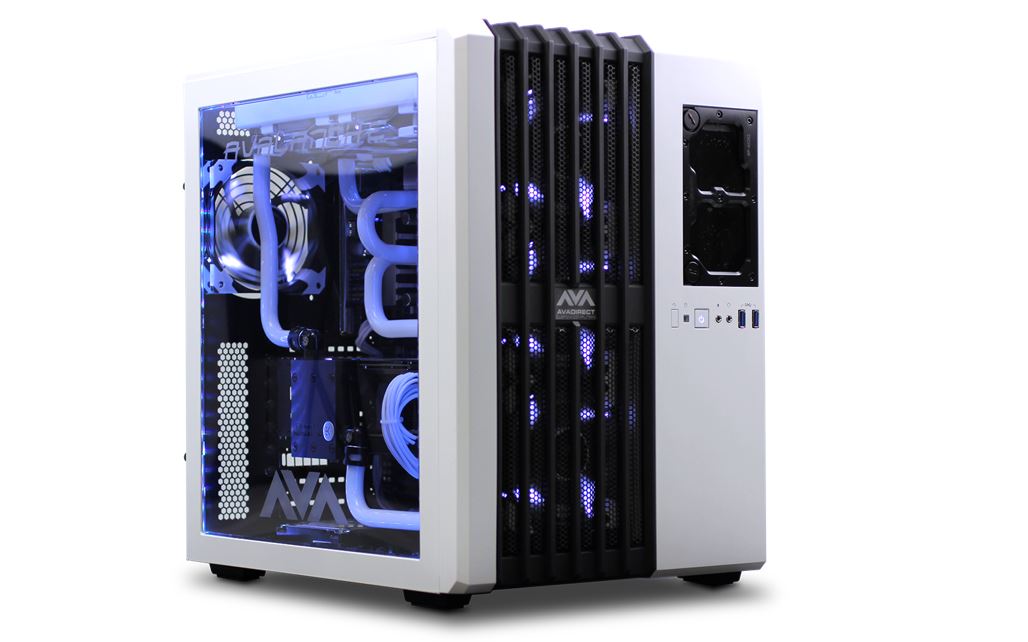
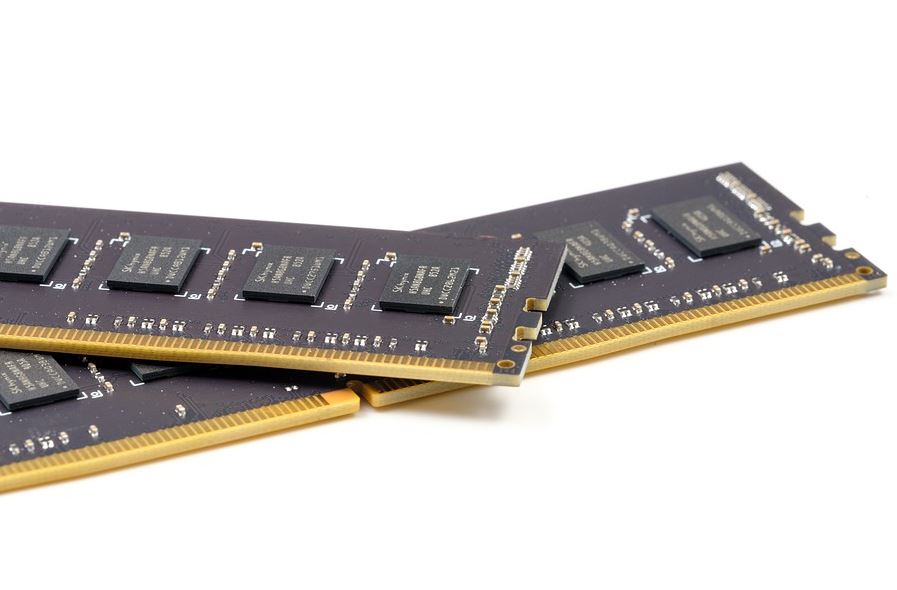
Related Posts
How to fasten your old laptop – 18 things to try
XPG Starker AIR MID-Tower Chassis review
Intel i5-13600 processor on Geekbench shows 14 cores
MSI unveils MEG PROSPECT 700R chassis with 4.3-inch IPS display
NZXT releases N7 B650E motherboard in black and white accent
Learn Swiftly, What are Cookies in Computer?